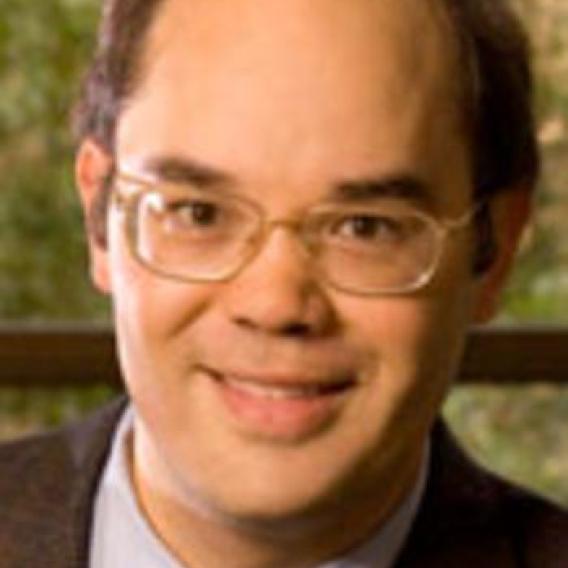Image

Steven D. Chang, MD
Professor - University Medical Line, Neurosurgery
Professor - University Medical Line (By courtesy), Otolaryngology (Head and Neck Surgery)
Professor - University Medical Line (By courtesy), Neurology and Neurological Sciences
Member, Bio-X
Member, Cardiovascular Institute
Member, Wu Tsai Neurosciences Institute
Residency: Stanford University Dept of Neurosurgery (1999) CA
Internship: Stanford University Dept of General Surgery (1994) CA
Medical Education: Stanford University School of Medicine (1993) CA
Board Certification: American Board of Neurological Surgery, Neurological Surgery (2003)
Fellowship: Stanford University Cerebrovascular Surgery Fellowship (2000) CA
Fellowship, Stanford University Stereotactic Radiosurgery Fellowship, CA (1996)
Executive MBA, Pepperdine University School of Business, CA (2020)
MD, Stanford University, Medicine (1993)
AB, Stanford University, Quantitative Economics (1989)
BS, Stanford University, Biology (1989)
Affiliation:
Committee:
Dr. Chang is a Professor and Vice Chairman of Strategic Development and Innovation in the Department of Neurosurgery at Stanford. He is also the inaugural holder of the Robert C. And Jeannette Powell Professorship in the Neurosciences at Stanford University School of Medicine. His clinical work and research focuses on the treatment of brain tumors and cerebrovascular disease.
After receiving his Medical Degree and completing his Neurosurgery residency training at Stanford University, Dr. Chang joined Stanford’s Department of Neurosurgery in 2000. He was named full professor in 2008, and that same year was appointed as the Powell Professor in the Neurosciences. Dr. Chang has a national and international reputation as an expert in both microsurgery and radiosurgery for treatment of brain, spine, and skull base tumors, and is the Co-Director of the Surgical Neuro-Oncology Program. His radiosurgery practice focuses on the use of the Cyberknife to treat neoplasms of the brain and spine. He was instrumental in the rapid growth of the Stanford Cyberknife Radiosurgery Program and is currently Co-Director of this program. Dr. Chang also specializes in the treatment arteriovenous malformations and cavernous malformations of the brain and spine, and surgical treatment of intracranial aneurysms. A fellowship trained cerebrovascular neurosurgeon, Dr. Chang specializes in multi-modality therapy for these vascular lesions. He is also an expert in both microsurgery and radiosurgery for treatment of trigeminal neuralgia.
Dr. Chang's research focuses on clinical outcomes for radiosurgery of brain and spine tumors. His lab has active research projects involving genetic analysis of arteriovenous malformation patients. He is the Director of the Stanford Neurogenetics Oncology Program and the Director of the Stanford Neuromolecular Innovations Program. He is the author or co-author of more than 300 peer-reviewed publications and book chapters.
After receiving his Medical Degree and completing his Neurosurgery residency training at Stanford University, Dr. Chang joined Stanford’s Department of Neurosurgery in 2000. He was named full professor in 2008, and that same year was appointed as the Powell Professor in the Neurosciences. Dr. Chang has a national and international reputation as an expert in both microsurgery and radiosurgery for treatment of brain, spine, and skull base tumors, and is the Co-Director of the Surgical Neuro-Oncology Program. His radiosurgery practice focuses on the use of the Cyberknife to treat neoplasms of the brain and spine. He was instrumental in the rapid growth of the Stanford Cyberknife Radiosurgery Program and is currently Co-Director of this program. Dr. Chang also specializes in the treatment arteriovenous malformations and cavernous malformations of the brain and spine, and surgical treatment of intracranial aneurysms. A fellowship trained cerebrovascular neurosurgeon, Dr. Chang specializes in multi-modality therapy for these vascular lesions. He is also an expert in both microsurgery and radiosurgery for treatment of trigeminal neuralgia.
Dr. Chang's research focuses on clinical outcomes for radiosurgery of brain and spine tumors. His lab has active research projects involving genetic analysis of arteriovenous malformation patients. He is the Director of the Stanford Neurogenetics Oncology Program and the Director of the Stanford Neuromolecular Innovations Program. He is the author or co-author of more than 300 peer-reviewed publications and book chapters.